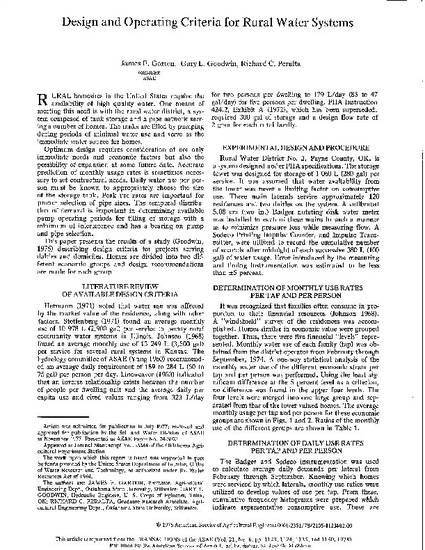
Rural homesites in the United States require the availability of high quality water. One means of meeting this need is with the rural water district, a system composed of tank storage and a pipe network serving a number of homes. The tanks are filled by pumping during periods of minimal water use and serve as the immediate water source for homes.
Optimum design requires consideration of not only immediate needs and economic factors but also the possibility of expansion at some future date. Accurate prediction of monthly usage rates is sometimes necessary to set contractural needs. Daily water use per person must be known to appropriately choose the size of the storage tank. Peak use rates are important for proper selection of pipe sizes. The temporal distribution of demand is important in determining available pump operation periods for filling of storage with a minimum of interference and has a bearing on pump and pipe selection.
This paper presents the results of a study (Goodwin, 1975) describing design criteria for projects serving dairies and domiciles. Homes are divided into two different economic groups and design recommendations are made for each group.
